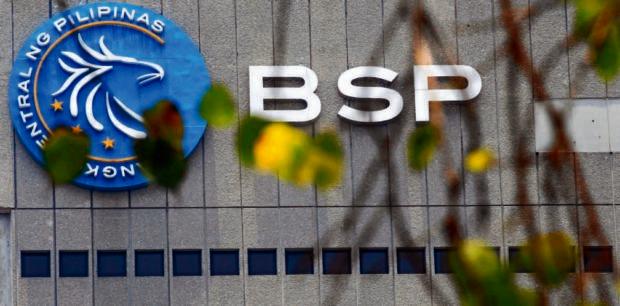BSP launches first digital payment program for farmers in Cordillera

FILE PHOTO Bangko Sentral ng Pilipinas. (Philippine Daily Inquirer)
BAGUIO CITY — The Bangko Sentral ng Pilipinas (BSP) on Tuesday launched its first digital payment and banking program for farmers as it expands its PalengQR project in the Cordillera.
BSP Deputy Governor Bernadette Romulo Puyat said the agency hopes to encourage more Cordillera farmers to open bank accounts and generate their “financial footprints,” while using digital technology to ease their day-to-day transactions.
“Based on the BSP Financial Inclusion Survey of 2021, 73 percent of our farmers [throughout the country] have no accounts. That’s quite huge, which is why we are starting in the Cordillera,” said Puyat, an economist and the tourism secretary during the Duterte administration, at the project launch here.
Last year, the value of Cordillera crops reached almost P14 billion, largely due to vegetable gardens in Benguet province, and the border towns of Ifugao and Mountain Province, which supply 80 percent of Manila’s daily salad vegetable requirements. Benguet generates between 1 million and 1.5 million kilos of cabbage, cauliflower, carrots, broccoli, lettuce, potatoes, and beans daily.
Puyat led the signing of a memorandum of understanding between BSP North Luzon director Noel Malicban and Cameron Odsey, Cordillera director of the Department of Agriculture, introducing PalengQR to highland farms.
PalengQR promotes cashless payments in economic activities like the public market or jeepney rides to develop a “digital payments ecosystem” for grassroots businesses.
BSP Governor Felipe Medalla first launched it in Baguio in August last year. But because half of Baguio’s nearly 4,000 market vendors now accept digital payments, Puyat said it was logical for their farm suppliers to transact digitally with the vendors.
Resistance
Puyat said the BSP would need to determine why farmers resist the concept of banking, having chaired the Agricultural Credit Policy Council until 2013.
That includes reviewing how cash-based transactions endured without the help of banks, a phenomenon she encountered while serving as an agriculture undersecretary under former President Gloria Macapagal Arroyo and the late President Benigno Aquino III from 2007 to 2018, she said.
When asked, Puyat said BSP would also study agricultural cooperatives’ role as de facto banks and fund managers for many farmers.
In her 12-year stint at DA, the BSP official said farmers have been reluctant about tapping bank services because the process was too laborious and required too many documents.
Puyat also recalled the sentiment that farmers felt bankers were “unable to understand them.”
The BSP baseline report from the 2021 Countryside Bank Survey saw agricultural lending dive fundamentally because of the lockdowns imposed at the height of the coronavirus pandemic, which “diminished clients’ capacity to earn, and discontinued or slowed down farming activities and businesses.”
According to the report, the other challenges encountered by banks in 2021 that further weakened the bankability of the agriculture sector were “increased credit risks due to natural calamities, pests and diseases, fluctuating prices of produce, outdated farming techniques [and the] lack of viable projects as most farmlands are fragmented or in far-flung areas with poor road access and security conditions, [and] crops do not have assured markets or buyers.”
Millennials who are now engaged in agriculture can influence the older farmers to embrace banking services, Odsey said. However, DA has yet to determine how many young farmers have taken over highland gardens. The average farmer today is in their mid-50 years old, he said. INQ
RELATED STORY:
QR code payments gaining traction among Filipinos, says BSP